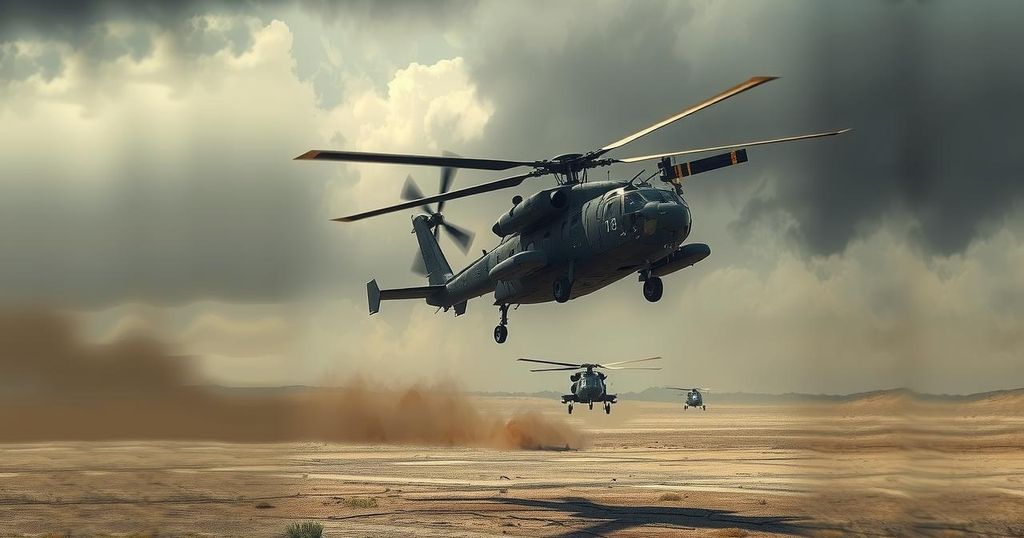A United Nations helicopter was attacked in Upper Nile State, South Sudan, resulting in one crew member’s death and injuries to others. The mission aimed to rescue wounded soldiers amid escalating political tensions that threaten a peace deal. President Salva Kiir has called for calm, but critics blame leadership for the ongoing crisis.
On Friday, a United Nations helicopter was attacked in a volatile section of South Sudan during an evacuation mission, resulting in the death of one crew member and injuries to two others. The helicopter was attempting to rescue wounded South Sudanese soldiers in Upper Nile State, but despite these efforts, the wounded soldiers were ultimately killed as well. The circumstances surrounding the assault remain unclear, with reports indicating that the attack may have occurred as soldiers were preparing to board the aircraft.
The attack coincides with escalating political tensions in South Sudan, where apprehensions are growing that the country could revert to civil war. South Sudan’s President Salva Kiir addressed the nation, urging calm and asserting the government’s resolve to manage the crisis: “Let no one take law into their hands. The government which I lead will handle this crisis.”
Critics, however, assert that President Kiir and opposing leaders are primarily to blame for the current instability. A pivotal power-sharing agreement, which concluded a vicious civil war in 2018 between Kiir and his first vice president, Riek Machar, is now at risk of unraveling as confrontations between their respective factions escalate in Upper Nile State. In connection to the helicopter incident, South Sudan’s information minister reported that 27 soldiers were killed, although independent verification of this claim is lacking.
The incident involving the U.N. helicopter highlights the precarious state of affairs in South Sudan as political tensions rise, threatening the fragile peace established by the 2018 power-sharing agreement. While President Salva Kiir has called for stability, responsibility for the chaos is debated among critics, emphasizing the need for effective governance to avert a return to civil conflict.
Original Source: www.nytimes.com




